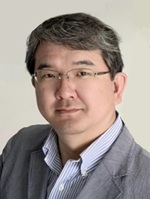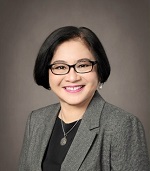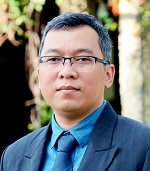KEYNOTE SPEAKER I IN ICCEA 2025

Prof. Thomas Kang, Seoul National University, South Korea
Dr. Thomas Kang, P.E., is a Professor at Seoul National University (SNU). He earned his Ph.D. from the University of California, Los Angeles (UCLA) and his B.S. from SNU. Dr. Kang is a Fellow of the American Concrete Institute (ACI), the Post-Tensioning Institute (PTI), and the Korean Academy of Science and Technology (KAST), and is a member of the National Academy of Engineering of Korea (NAEK).
He has received numerous prestigious awards, including the T.Y. Lin Award from the American Society of Civil Engineers (ASCE) in 2025, the Kenneth B. Bondy Award for Most Meritorious Technical Paper from PTI (twice, in 2012 and 2023), the Wason Medal for Most Meritorious Paper from ACI in 2009, and the Martin P. Korn Award from the Precast/Prestressed Concrete Institute (PCI) in 2023.
Dr. Kang currently serves as Editor-in-Chief of the Journal of Wind & Structures and as Associate Editor of the PTI Journal. His research focuses on the design and behavior of concrete structures and structures incorporating recycled plastics, as well as dynamic effects on structures, including wind, seismic, shock, and fire.
Keynote Speech Title: Maximizing Carbon Neutrality and Circularity: Discovery of the Fifth Construction Element
Abstract. Throughout human history, construction has relied on four foundational materials: wood, stone, cement-based composites, and steel. While fibers, polymers, and alloys have found niche applications, none have matched the scale or structural significance of these traditional materials.
This keynote speech introduces a transformative innovation: recycled plastic blocks, envisioned as the fifth construction material redefining the evolution of the built environment. Produced from mixed waste plastics recovered from oceans, rivers, and landfills, these blocks are manufactured without complex sorting or chemical separation. The plastics are melted at temperatures up to 250 °C and cast into interlocking units. Despite this simple process, the blocks achieve exceptional mechanical performance, a compressive strength of 24 MPa (comparable to concrete) and a tensile strength of 10 MPa (four to five times higher than concrete), allowing them to serve as structural substitutes for reinforced concrete.
Engineered for landscape structures, retaining and seawalls, embankments, housing, and vertical enclosures, these blocks combine versatility, resilience, and environmental innovation. By converting plastic waste into durable construction components, they offer a practical pathway toward Maximizing Carbon Neutrality and Circularity in the global construction sector.
This pioneering material has been internationally recognized, earning a Silver Medal in the Advanced Engineering Infrastructure Solutions category at the 2025 Edison Awards and being named a CES Innovation Awards 2026 Honoree, underscoring its potential to redefine sustainable infrastructure. Beyond mitigating pollution and reducing the carbon footprint of conventional materials, the technology enables future remanufacturing and chemical upcycling, ensuring long-term adaptability and value retention.
Guided by the vision of a long-sought fifth element, this innovation marks a pivotal step toward a regenerative built environment—one that unites structural performance, ecological restoration, and design freedom in a single, enduring material system.
KEYNOTE SPEAKER II IN ICCEA 2025

Prof. Dr. Ir. Herlien D. Setio, Institut Teknologi Bandung, Indonesia
Professor Dr. Ir. Herlien D. Setio is a professor in Structural Dynamics and Control and Head of the Structural Engineering Research Group at the Faculty of Civil and Environment Engineering Institut Teknologi Bandung (FCEE-ITB), Indonesia. She graduated from the Civil Engineering Department at Institut Teknologi Bandung (ITB) in 1981 and received her doctoral degree in Structural Dynamics from Ecole Centrale de Lyon, France, in 1990. She has been a lecturer at Institut Teknologi Bandung since 1982, where Structural Dynamics and Control are her main specialties. She is also active as a guest lecturer in the field of infrastructure forensics engineering in relation to corruption cases at the University of Indonesia (UI) for a Magister Collaboration Program of the Faculty of Law UI with the Indonesian Police Department. Throughout her service as a lecturer and government officer at ITB, Professor Setio has held various positions, including Head of the Civil Engineering Department, Head of the Structural Engineering Research Group FCEE-ITB, member of the Academic Senate ITB, and Head of the Senate FCEE-ITB. In addition, she is a member of AARGI, the Indonesian Earthquake Engineering Association. For her expertise, in 1994, she was awarded "The Best Paper Award" from the Society of Experimental Mechanics, USA, based on her publication in The International Journal of Analytical and Experimental Modal Analysis. Professor Setio’s research focuses on Structural Dynamics and Control, where stabilizing structures excited by dynamic loading is the main interest. She has published more than fifty papers in various national and international journals, including the Journal of Sound and Vibration, the Journal of Applied Mechanics, the ASME Transactions, the Journal of the American Institute of Aeronautics and Aerospace (AIAA), The International Journal of Analytical and Experimental Modal Analysis, and the Society for Experimental Mechanics, Inc., USA. Prof. Setio is also active as a researcher in the field of Forensic Infrastructure Engineering, which is a branch of engineering that combines technical, legal, and forensic principles to investigate and analyse infrastructure failure. Over the last 10 years, she has served as an invited expert for the Indonesian Anti-Corruption Commission (Komisi Pemberantasan Korupsi-KPK), providing critical insights into infrastructure projects, especially in Infrastructure Forensic Engineering.
Keynote Speech Title: Forensic Engineering for Infrastructure Quality Improvement
Abstract. Infrastructure failures persist as a significant problem in Indonesia. Corruption, technical incompetence, and weak governance in project implementation are the main factors contributing to the poor quality of national infrastructure. The construction industry is among the sectors with the highest risk of fraud and project failure due to the large project values and the complexity of implementation. Therefore, a robust mechanism for preventing, monitoring, analyzing, diagnosing, and responding to fraudulent activities is essential to effectively mitigate these risks. This research employs both qualitative and quantitative approaches, utilizing primary and secondary data obtained from investigations of various cases of structural failures and fraudulent practices in infrastructure projects over the past decade. The findings indicate that infrastructure failures and poor construction quality are largely the result of widespread and systematic fraudulent practices involving multiple stakeholders across all project stages, from initiation and feasibility studies through planning, tendering, and construction execution to project supervision and laboratory material testing. Corrupt practices significantly increase construction costs and reduce project quality, ultimately leading to higher infrastructure maintenance expenses. This study proposes a preventive framework to eliminate or at least minimize the occurrence of corrupt practices in infrastructure development in Indonesia through a forensic approach based on Root Cause Analysis (RCA) and Failure Mode Analysis (FMA).
KEYNOTE SPEAKER III IN ICCEA 2025
 Kim.png)
Prof. Young (Youngchul) Kim, Korea Advanced Institute of Science & Technology, South Korea
Prof. Young (Youngchul) KIM, Ph.D. is an urban designer, licensed architect, researcher and educator, currently serving as an associate professor of urban design at KAIST (Korea Advanced Institute of Science and Technology) in South Korea. He teaches theory and design in architecture and urbanism. His current research interests include investigating planning and design strategies within the context of smart cities and climate change and employing deep learning and artificial intelligence approaches for urban analytics to capturing urban invisible characteristics. His urban research and urban design practice both explore roles of built environments in human being's daily challenges to continuously sustain their urban life. He leads the KAIST Smart City Research Center and KAIST Urban Design Lab.
Keynote Speech Title: Using Artificial Intelligence for Urban Analytics
Abstract. This keynote presentation delivers research outcomes from the KAIST Smart City Research Center and the KAIST Urban Design Lab, demonstrating urban analytic methods and applications from urban sensing to decision supports. First, a compute-vision method using street-view images is proposed to detects neighborhood growth and decline at a street level. Second, a decision support system is developed to identify vulnerable areas exposed to disaster risk in small declining urban districts for enhancing urban regeneration capacity. Third, an explainable artificial intelligence method is demonstrated to reveal vulnerable populations and interpretable features using a random-forest model of heat-related mortality with SHapley Additive exPlanations (SHAP). Fourth, an AI advisor is proposed to develop conceptual land‑use planning for understanding contexts in a city. These studies illustrate how we have adopted machine and deep learning approaches to analyze urban space for accelerating equitable, resilient urban environments. This presentation concludes by reflecting on these methodological advances and a call of open dialogue of the widespread adoption of AI, which is expected to bring about a paradigm shift for urban analytics.
KEYNOTE SPEAKER IV IN ICCEA 2025

Dr.-Ing. Andry Widyowijatnoko, Institut Teknologi Bandung (ITB), Indonesia
Dr.-Ing. Andry Widyowijatnoko is an architect, lecturer, and researcher at the School of Architecture, Planning, and Policy Development, Institut Teknologi Bandung, Indonesia. He has been working with bamboo since 1999, initially focusing on using bamboo for low-cost housing. In 2006, he was sponsored by the Environmental Bamboo Foundation to travel to Colombia to learn about bamboo construction techniques. This experience transformed his approach, leading him to promote bamboo by designing high-end buildings to increase its perceived value. One of his notable achievements is the award-winning Great Hall OBI, an oval bamboo structure with spans ranging from 20 to 30 meters. He earned his doctoral degree in 2012 from the Chair of Structures and Structural Design, Faculty of Architecture, RWTH Aachen University, Germany. His dissertation, titled Traditional and Innovative Joints in Bamboo Construction, focused on bamboo joints. It began with a classification of bamboo construction types, followed by a detailed classification of bamboo joints, and concluded with a proposal for customized lashing-based bamboo joints with exceptional tensile strength. The patented joint, known as the Bamboo Radial Compression Joint (Barcom Joint) and its variation with multi-knots, was applied to improve the renowned Three Mountain Building in Bali. He is regarded as a pioneer of tensegrity structures in Indonesia, combining them with bamboo construction. Drawing on his experience with tensegrity and reciprocal frames, he invented a new structural system called Rection (Reciprocal Tension). Unlike conventional reciprocal frames, where rigid elements touch, Rection features elements that lift each other reciprocally without direct contact, similar to tensegrity principles. Two temporary bamboo Rection domes were built: one at Indonesialand in 2016 with a 13-meter diameter, and another at ITB in 2017 with a 10-meter diameter, followed by additional structures in Lampung and Malang. To promote proper bamboo construction techniques to architecture students and professionals worldwide, he cofounded the AA-ITB BambooLab Course with John Naylor in 2018, a joint workshop between ITB and the AA School of Architecture, London. He has delivered numerous lectures and conducted hands-on workshops on bamboo construction across Asia, Australia, Europe, and the Americas.
Keynote Speech Title: From Simple Bamboo Structures to the Invention of a New Structural System: The Journey from Reciprocal Frame to Rection
Abstract. Bamboo has long been recognized as a sustainable material with good strength-toweight ratio, rapid renewability, and resilience under compression and tension. Its potential is particularly significant for architectural and structural applications in postdisaster reconstruction, where eNiciency, adaptability, and environmental compatibility are essential. This study examines the progressive exploration of bamboo structures, beginning with simple post-disaster shelter prototypes employing low-technology construction methods.
The investigation revisits the reciprocal frame (RF) as an ancient self-supporting system characterized by mutual interdependence among structural elements. A combination of literature review and field practice reinforced the proposition that there is a structural and conceptual correlation between the reciprocal frame and tensegrity structures, leading to the formulation that the reciprocal frame can be understood as a collapsed tensegrity. While tensegrity systems emerged in the 1940s, their conceptual application in Indonesia remained unknown until the early 2013.
Further structural experimentation led to the development of a new hybrid system, termed Rection, in 2016. The Rection system integrates key principles of both reciprocal and tensegrity structures, establishing a transitional typology with highly improved material eNiciency. Full-scale workshops and empirical testing demonstrate its applicability in bamboo construction, highlighting potential benefits in modular assembly, lightweight performance, and educational implementation. This practice contributes to the broader discourse on innovative structural systems derived from traditional materials, oNering insights into sustainable architectural practice and the evolution of spatial-structural design.